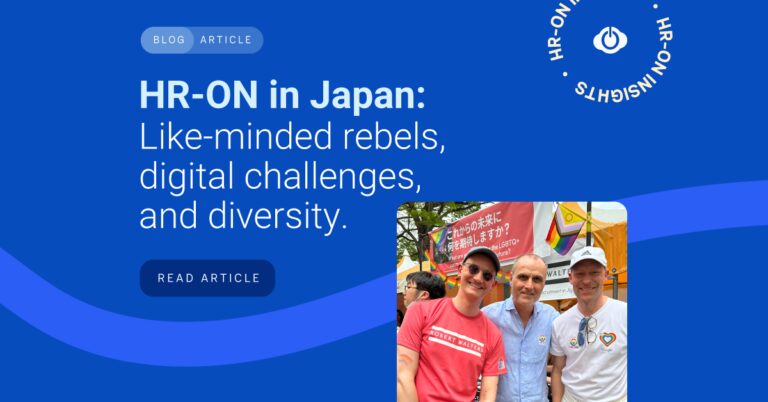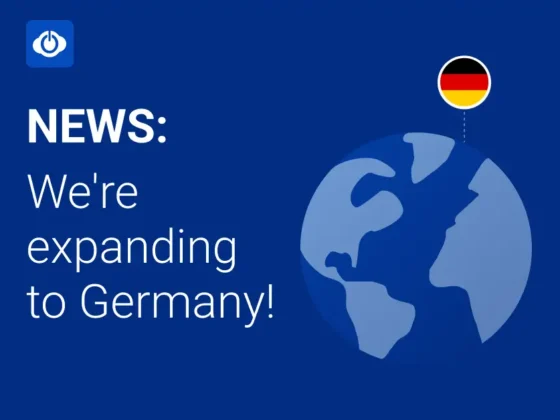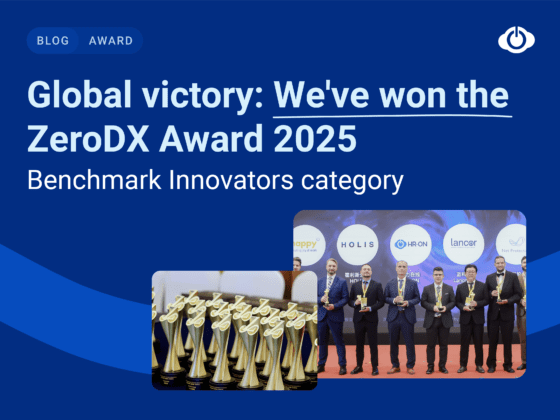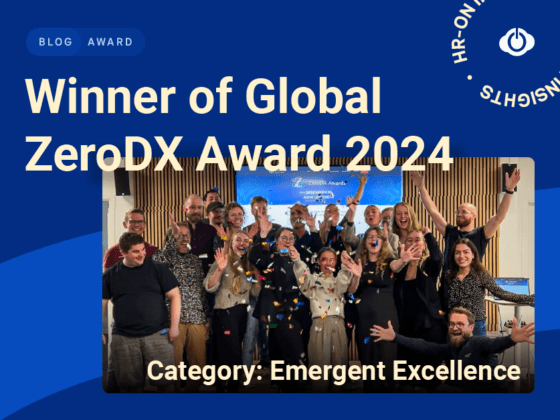Like-minded rebels, digital challenges, and diversity: Read Ali’s takeaways from Japan
HR-ON in Japan
- HR-ON was invited to Tokyo, Japan, in April 2024 as part of a selected delegation from Denmark, accompanied by the Minister of Digitalization and Equality, Marie Bjerre
- HR-ON’s CEO, Ali E. Cevik, returned home with more than just new insights into Japanese culture. Ali E. Cevik also gained a deeper understanding of the country’s challenges with digitalization, the courage of Japanese rebels to change work life, and he participated in everything from the Tokyo Pride Parade to events with large global companies
- Additionally, Ali E. Cevik had the opportunity to share HR-ON’s values and mission with companies and educational institutions
Below, you can read reflections on the trip to Japan shared by Ali E. Cevik, CEO and founder of HR-ON.
April 17: Meets Japanese rebel front-runner Yuji Yamada
ALI’S COLUMN: My first official meeting was with our client, The British School in Tokyo, together with our partner Ginto Asia. It was great to see the school, see the children playing, the whole environment, and to talk with the school principal and their HR Manager.
The next item on the program was “Revolutionize Your Workplace” – an event organized by our partner Ginto Asia and COGS K.K., an executive search and recruitment company. They had invited HR enthusiasts from their network. Among others, I met with the leader of the Japanese Corporate Rebel cell, Yuji Yamada. He has translated the book “The Corporate Rebel – Make Work More Fun” into Japanese.
You might also like: HR-ON Invited to Tokyo: Japan Wants to Learn About HR Digitization
It is a global concept, a network of companies around the world that work progressively with management, just like us, with what is called liberating leadership. This means leadership without hierarchy; self-management based on a set of values and principles.
HR-ON is a member of the first cell in Denmark. We are pioneers – also in Denmark. The same goes for them in Japan, so it was quite amusing that we could meet on the other side of the globe based on a shared professional interest in modern management.
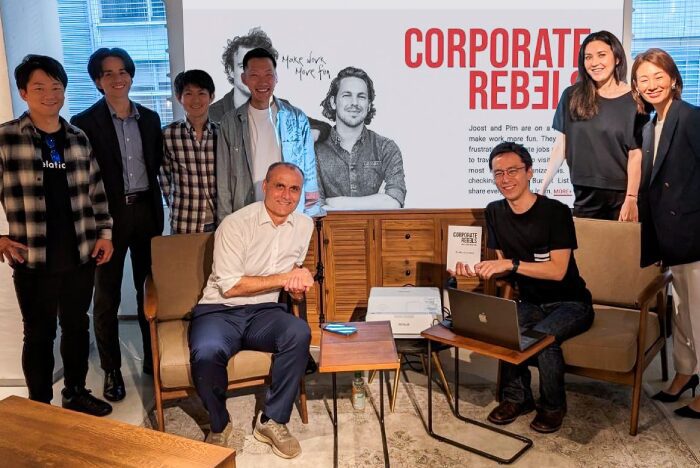
April 21: Attending Tokyo Rainbow Pride with speeches from around the world
We attended Tokyo Pride on Sunday. There were speakers from all around the world: Belgium, The USA, Australia and the Danish minister of Digital Government and Gender Equality who gave a speech too. She, too, used H.C. Andersen as a case.
You might also like: What Does Diversity, Equity, and Inclusion Mean? – Your Company Is Like “A Box of Chocolates”
I shared a similar perspective with the minister. She used the story of the Ugly Duckling to illustrate her point: sometimes, you need to allow things to develop before you can appreciate the beauty in everything, and diversity should be seen as a gift. The Ugly Duckling’s transformation into a beautiful swan exemplifies this idea. We all possess something beautiful and good within us. She considered it to be a great story.
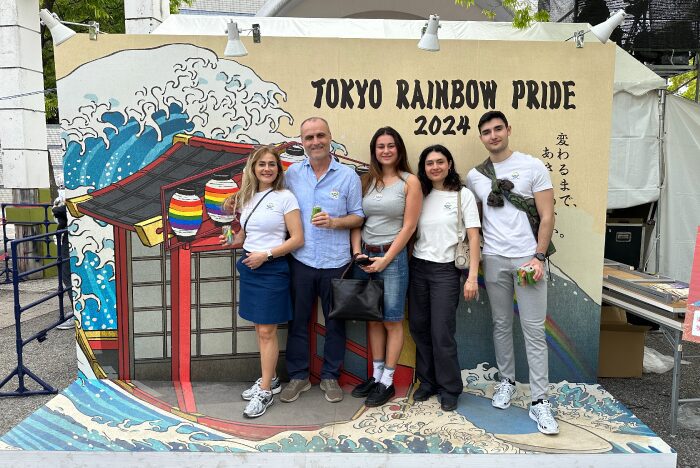
22 April: The president of Tokyo University proposed a collaboration
The event was opened by Kohei Itoh, the president of Keio University, Marie Bjerre, the Danish minister of Digital Government and Gender Equality, and Taro Kono, the Japanese minister of Digital Government. Taro Kono has worked in multiple ministries.
The three of them opened a debate on digitalization, safety, cyber security, the future of artificial intelligence, perspectives for artificial intelligence, and so on.ves for artificial intelligence, and so on.
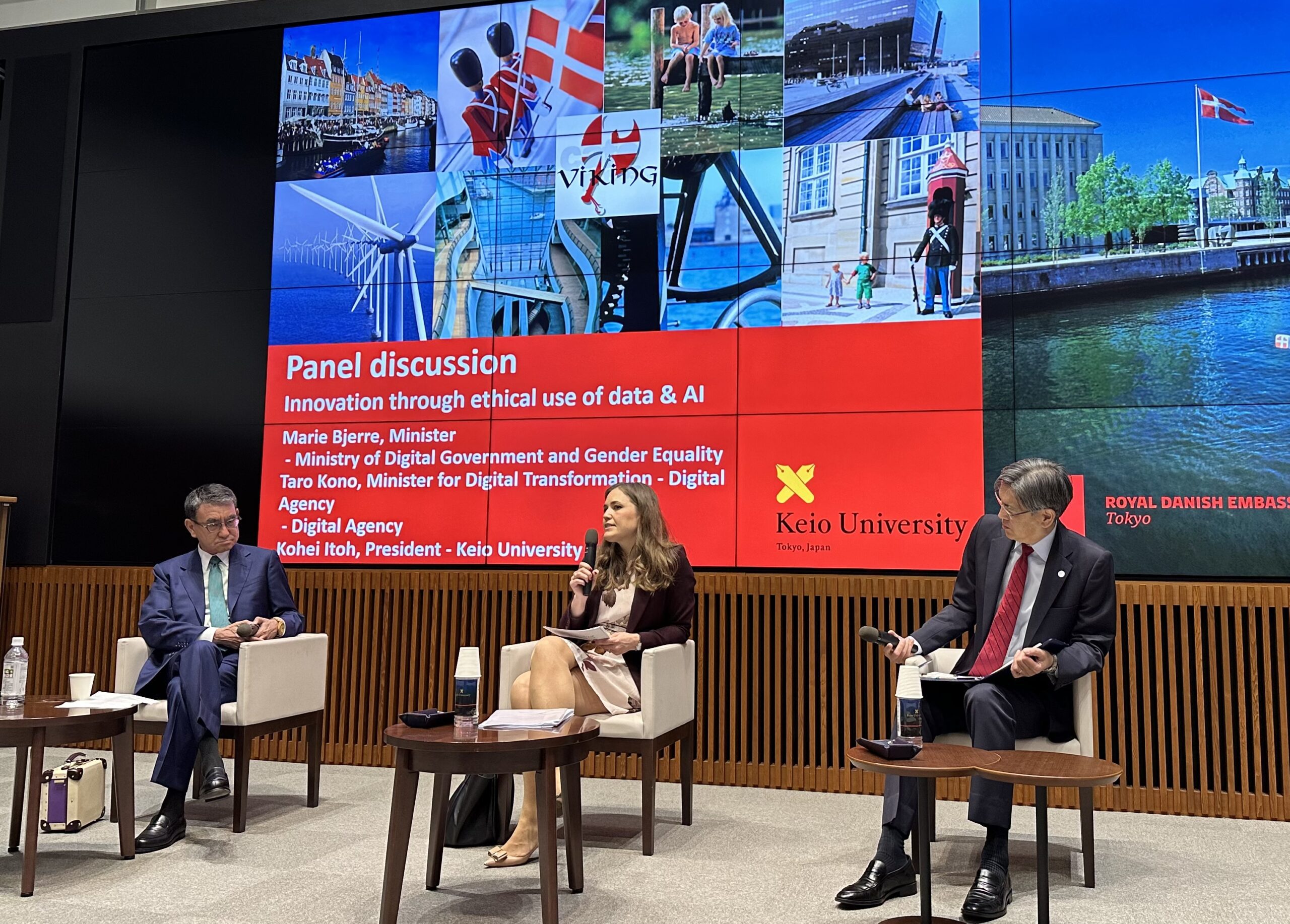
Four Danish companies presented at the event:
The companies were Patricia, a security company, FrontDesk, which, makes bookings for the public sector, Queue-it, which makes queue systems for websites, and HR-ON. The attendees were private companies, public companies, municipalities, and educational institutions.
After the presentations, Kohei Itoh, the president of Keio University, approached me and applauded something I mentioned in my presentation about matching mentors and mentees. He then proposed that we match our qualifications and proceeded to brainstorm ideas on how to do so.
You might also like: From Shepherd to Gazelle Hunter – An Unusual Journey to Success
It was exciting that our input triggered a need, and the attendants proactively saw a project that could create synergy for both parties – a project that would build a bridge between Japan and Denmark in relation to creating an environment where people’s professionalism and interests are matched. It was a project we had to keep moving.
The minister agrees: IT is not an end result, but a tool for people to evolve
After lunch, a larger event was held at the Danish embassy. More attendees were invited, and I gave a speech. Following me, Marie Bjerre, the Danish Minister of Digital Government and Gender Equality, also spoke. Interestingly, she touched on many of the same points I did. In conclusion, I stated that HR-ON sees IT as a tool, not a goal in itself.
The goal is to create a space for people to grow and flourish. Ultimately, it’s about the sustainable development of our society. Our mission is to establish a sustainable company and develop software that can help people grow and reach their potential.
We make software and believe that our value-based self-management approach is a natural way to run cutting-edge software. If our ambition is to become a global supplier and achieve something phenomenal worldwide, we need to do something remarkable in our management first and foremost.
The old traditional management system is outdated. We cannot continue using an old-fashioned method to track our employees’ attendance and expect to develop exceptional global software. My point is that our approach to society, inclusion, diversity, creativity, and innovation needs to align with creating products that we are proud of and that can help us evolve.
It was life-affirming for me to be reassured that the minister could also see the connection, so that was great. There were synergies that were visible, without them being planned.
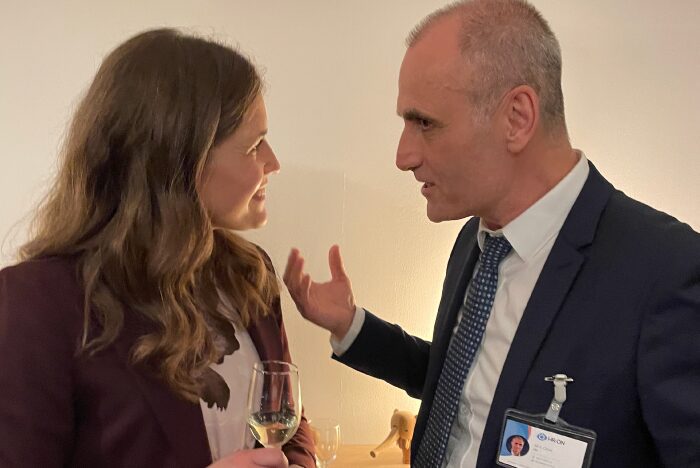
April 23: Debating equality with global players in front of the japanese press
On Tuesday, there was a roundtable debate on equality and sustainability. Representatives from companies such as Tokyo Gas, Novo Nordisk, MUFG Bank, the Japanese equivalent of the Equality Board, Queue-it, and HR-ON were invited. The ambassador and the minister were present, and the Japanese counterpart to the Minister for Equality was also there.
We discussed how, at HR-ON, we place a strong emphasis on inclusion and diversity as an essential part of our leadership approach. And again, as I mentioned, for us, developing groundbreaking software is inseparable from thinking in groundbreaking and modern ways about how to organize ourselves – for us, those two things are interconnected.
You might also like: Diversity is part of HR-ON’s DNA
So it turned into a roundtable discussion with the presence of a large group of the Japanese press.
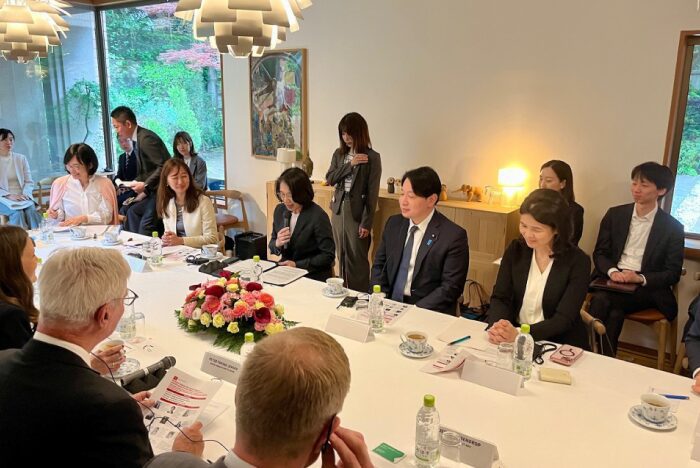
April 24: Enormeus help for Japan to digitalize paper stacks
Robert Walters is a global British recruitment company with more than a hundred employees in Japan that helps global companies recruit HR. They invited their network and clients, including Coca-Cola, Zürich Insurance, AIG Insurance, and other global companies operating in Japan.
Then, we talked about challenges regarding recruitment and employee data, as well as employee growth. When a corporate company operates worldwide and chooses a tool for the whole world, employees often experience that the tools are not necessarily made for the context in Japan in relation to government, language, and functionality.
It isn’t easy to digitize—let alone digitalize paper formats—and it is a big step for them. If we begin to digitize paper documents, it would be a big help to them.
In that area, I got smarter. It was good for me to gain an insight into their challenges and to see their very modern, well-functioning society, which includes their traditions.
25 April: Likeminded rebels get to meet across the Atlantic
On Thursday, I had a great conversation at the Corporate Rebels event, and we discussed challenges and possibilities.
I asked how their culture and social arv play a role in self-valued management. I imagined Japan’s values were traditional, hierarchy, and structure.
You might also like: HR-ON’s value-based management approach empowers employees
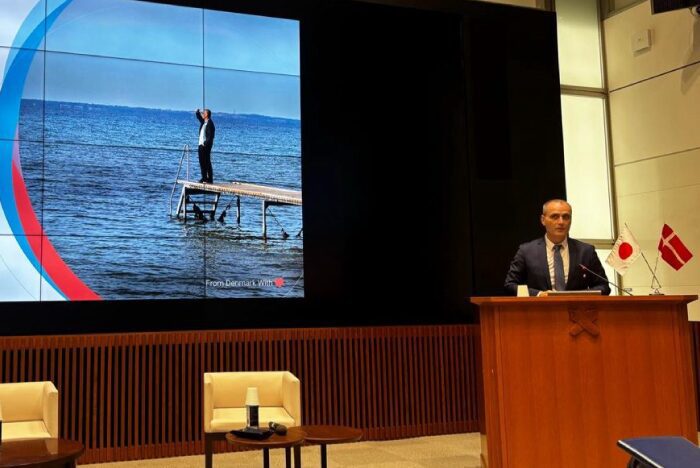
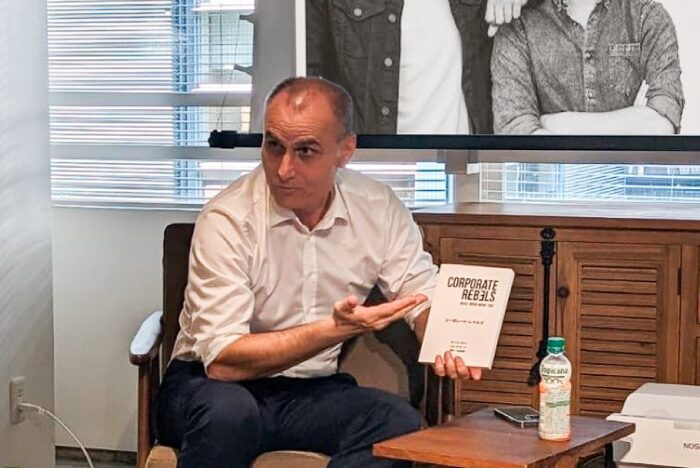
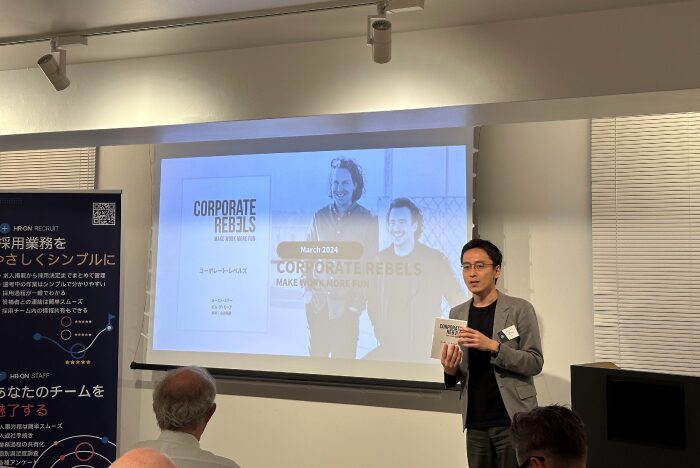
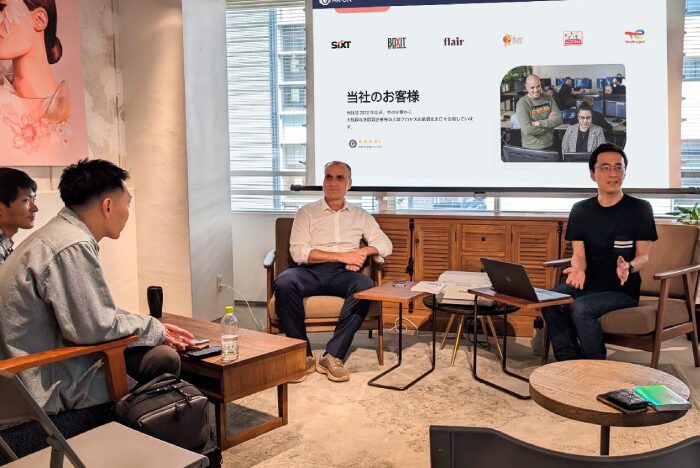
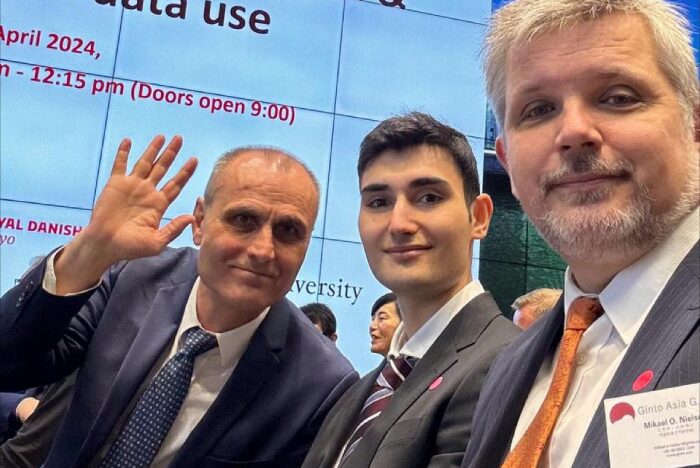
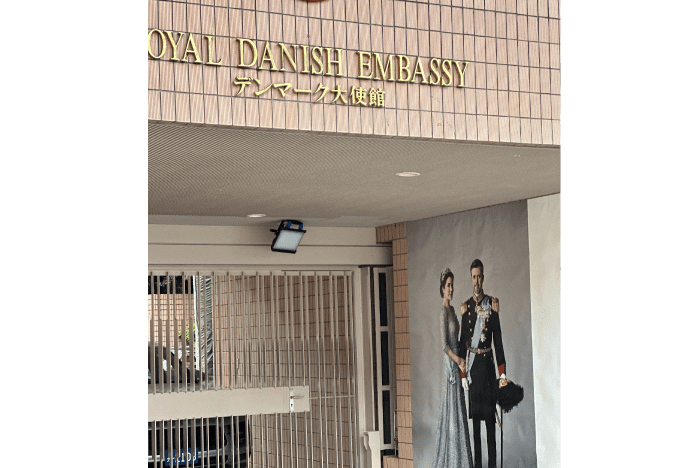
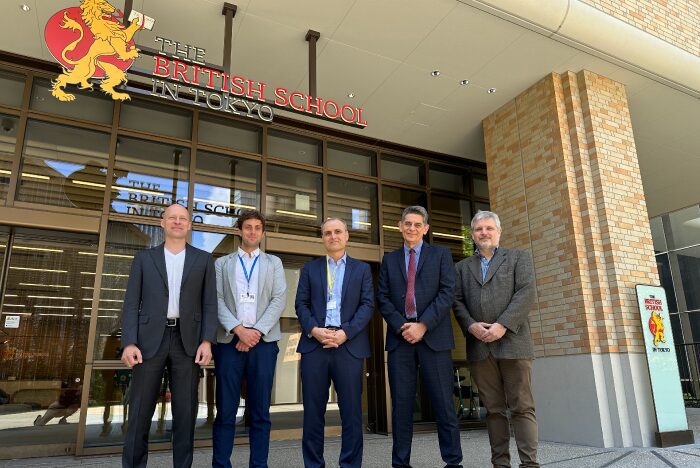
April 25: Great interest in Value-based self-managemnt
Nordic Next was a successful event with all the Nordic chambers of commerce—Danish, Icelandic, Swedish, and Finnish. It took place at the Icelandic Embassy, where they were keen to hear about our approach to self-management and our employee manifesto.
We had a good conversation about organizational structures, the challenges associated with them, and how this might look in a Japanese context.
Overall, the impression I’ve taken from the trip is that Japan is a highly technologically advanced country—regarding infrastructure and so on—but in terms of digitizing work processes, Denmark can undoubtedly inspire them, concludes Ali Cevik.

